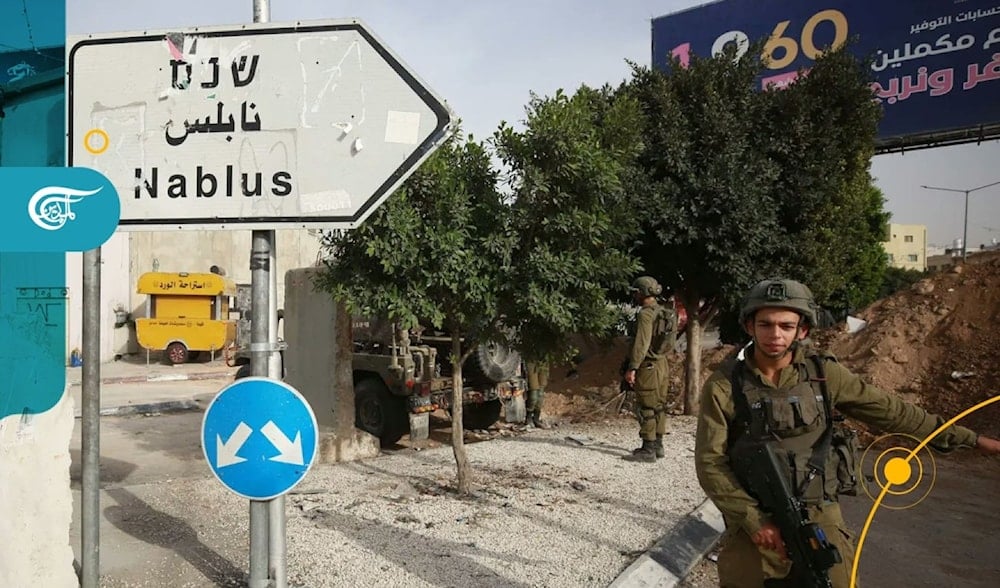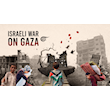Palestine's economic kingdom: How genocide impacted Nablus
Once Palestine’s economic crown jewel, Nablus now fights for survival under siege. Discover how genocide, checkpoints, and occupation shattered a thriving city, and how its spirit refuses to break
-

Palestine's economic kingdom: How genocide impacted Nablus
Over an area of nearly 600 square kilometers, more than 400,000 people live across 61 cities, towns, and residential areas in the Nablus Governorate.
The governorate is marked by extensive economic activity, boasting more than 1,200 food industries and detergents factories, as well as quarries, crushers, sawmills, brick and concrete factories, and tailoring workshops. It also has the highest percentage of registered traders in Palestine, hitting 39% in 2024, ranking second for the number of new factories that same year, while its residents are the most active investors in the stock exchange.
For this reason, Nablus is known as the "Uncrowned Kingdom of Palestine," because the symbolic superiority remains with al-Quds. But the Israeli occupation, especially after the genocide, has tightened the noose on the city’s economy and strangled its commercial activity.
Roads to Nablus: Between checkpoints and barricades
The roads leading to Nablus drastically changed after the genocide, as the occupation blocked its main gateway through the town of Huwara with concrete barriers. Palestinians were forced to take longer, more exhausting alternative routes.
Even so, visitors within Nablus, between its cities, villages, and the old town, have a different experience when it comes to trade and markets. In the alleys of the old town, one can sense the history of the city and its old name, “Little Damascus”, reflecting its once-strong trade ties with Syria's Damascus. The markets of the two cities were similar, but today, Nablus aches under occupation.
Nablus: A destination before the siege
Um Ahmad from Nablus says, “The city used to be packed with visitors, especially on weekends. Families from the territories occupied in 1948 came on Saturdays and Sundays, as well as visitors from the West Bank. Fridays were for trips to the al-Badhan area and school excursions."
"But this all stopped with the closure of the Huwara checkpoint, the dirt barriers at al-Lubban al-Sharqiya, and the reinforced checkpoints in Beita, Burqa, and Zaatara, in addition to daily raids. These measures made many hesitant or unwilling to visit Nablus, which directly hurt the markets and trade.”
The complete visitor’s basket
Palestinians in the West Bank and those inside occupied territories know that Nablus is the perfect destination for a well-rounded day: delicious food, famous sweets, historical sites, bustling markets, and diverse products.
Engineer Fahd Bani Odeh, Director of the National Economy Directorate in Nablus, confirms that the governorate’s economy is distinguished by the presence of large and long-standing companies: wholesalers, importers of diverse consumer and primary goods, telecommunications firms, pharmaceutical companies, the stock exchange, and cosmetics producers. The city also has aluminum factories certified with both local and international quality standards.
Nablus is also home to national industries such as halaweh and tahini, juices, canned meats, dairy, and the renowned Nablusi soap, known across the Arab world and internationally, made from pure olive oil.
Stone and women in Nablus’ economy
Statistics show that Nablus ranks third in quarrying licenses for 2024, thanks to its terrain rich in high-quality Palestinian stone exported to Arab countries, generating major economic returns.
Bani Odeh adds that women play a prominent role in the economy of Nablus through tailoring workshops, producing clothing for export, alongside traditional leather industries such as shoes and bags.
Women have also launched food businesses exporting abroad, while local furniture companies, relying on high-quality carpentry, compete with imported goods.
The genocide's impact on Nablus’ economy
Trader and customs broker Tareq Saqf al-Heet says the genocide in Gaza left a deep impact on Nablus.
"The city has been blocked not just since the war, but since the Second Intifada. A visitor never knows whether the road to Nablus will be open or shut, and it can take up to three hours instead of forty minutes. This affected purchasing power and disrupted Nablus’ integration with other governorates. We are the only governorate completely closed off, and we feel economically besieged," he stated.
Reports from the Palestinian Ministry of Economy indicate an 85% drop in import licenses and a decline in their value. Some sectors collapsed, others shrank, and a few grew, such as the import of food and health goods. Traders depending on postdated checks were also hit hard by rising cases of non-payment.
How 'Israel' strangles ports
The occupation also imposes restrictions on importing goods it deems to have a “security dimension” and withholds some licenses, in addition to delays at ports where its ships are prioritized. This pushes the arrival of Palestinian goods to 40 to 60 days instead of 20.
The old town is among the most affected areas due to repeated raids, leading to shop and factory closures. Traditional industries such as soap-making face major challenges, but owners insist on continuing production, even with minimal profits, to preserve their inherited craft.
Palestine stock exchange at the heart of Nablus
Many major national institutions are based in Nablus, most notably the Palestine Stock Exchange, founded in 1997 as the first investment gateway.
Ahmad Safi, head of public relations at the exchange, says the market capitalization of listed companies reached around $4.1 billion by the end of 2024, spread across 48 companies in banking and financial services, industry, investment, and insurance. Ten brokerage firms and three custodian banks operate in the exchange, making it one of the first fully automated Arab markets.
Around 16,000 shareholders are from Nablus, equivalent to 23% of all shareholders, making it the largest investor base among governorates.
But the aggression on Gaza and the West Bank caused al-Quds' index to drop by 15% in 2024, and average daily trading to fall by 50%. Still, the exchange continued operating and withstood the city’s closures.
Nablus’ resilience: A legacy defying occupation
Despite the siege, raids, and daily closures, traders, workers, and women in Nablus cling to ancestral industries and national projects.
Today, Nablus is more than just an economic city; it is a symbol of Palestinian resilience against war, extermination, and occupation, where its people strive to preserve the spirit of their city as the “Uncrowned Kingdom of Palestine.”
Read more: Beita's blood-stained hills: A battleground of resilience and martyrdom
Translated From Arabic to English by Tala Alayli

 6 Min Read
6 Min Read











